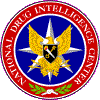
|
National
Drug Intelligence Center Washington/Baltimore High Intensity Drug Trafficking Area Drug Market Analysis June 2007 Illicit FinanceDrug traffickers in the W/B HIDTA region use various money laundering techniques in order to conceal illegal profits and finance their operations. The means of transferring illicit funds remain consistent but vary by group and include smuggling bulk cash, conducting wire transfers, structuring bank deposits and money order purchases below $10,000, commingling drug proceeds with funds generated at legitimate businesses, purchasing real estate and vehicles, operating front businesses, and using smart cards, automated teller machines (ATMs), prepaid stored value cards, and hawalas.1 Law enforcement reports a decrease in the use of traditional financial institutions to launder drug proceeds because drug traffickers are attempting to avoid the filing of Currency Transaction Reports (CTRs) and Suspicious Activity Reports (SARs) by bank officials. Colombian, Dominican, and Mexican DTOs and criminal groups primarily transport drug proceeds in bulk from the United States, across the U.S.-Mexico border and into Mexico, Central America, or South America for eventual repatriation. In transporting bulk cash, these traffickers use private vehicles, commercial vehicles, freight transportation companies, shipping containers, and package delivery services. Additionally, Mexican DTOs launder drug proceeds by structuring bank deposits into multiple accounts to avoid the CTR filing threshold. Asian DTOs and criminal groups use money-intensive front businesses, such as travel agencies or car washes, to launder illicit drug proceeds. They also transport drug proceeds in bulk, in the form of cash and money orders, to Canada. Once the proceeds are in the country, these groups deposit them into Canadian bank accounts and then electronically wire transfer the proceeds to source countries. Asian DTOs and criminal groups also launder drug proceeds by structuring bank deposits and participating in real estate fraud. Middle Eastern and Pakistani DTOs and criminal groups launder illicit heroin proceeds through front businesses, such as used car dealerships, and through the use of hawalas. Nigerian DTOs favor bank fraud schemes as well as bulk currency smuggling. West African groups often purchase cars or other legal assets to ship back to Africa as a method of payment. Most retail-level drug dealers launder drug proceeds through the purchase of consumer goods such as clothing, jewelry, and vehicles; through the purchase of real estate; and through front businesses. Some retail-level dealers also launder money through recording studios and businesses that promote rap music concerts. Drug traffickers use other techniques to launder illicit drug proceeds that involve money orders, stored value cards, ATMs, the precious metals and gems trade, and casinos, as well as schemes involving real estate and the insurance industry. Traffickers' use of these and other techniques is limited only by their imaginations. End Note1. Hawala is a fairly anonymous form of banking that has been used in the Middle East for centuries. Hawala money transfers are made outside the formal banking sectors and are virtually undetectable. Transfers are made primarily from one location to another without physically moving funds and, in many cases, with little or no recordkeeping. Any records that are kept are usually in an unrecognizable form of shorthand or are encoded. |